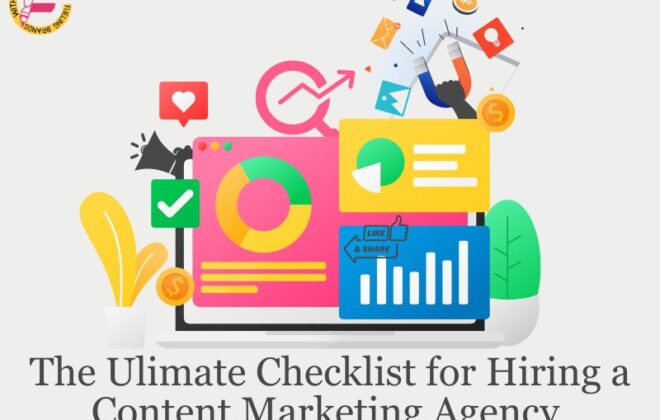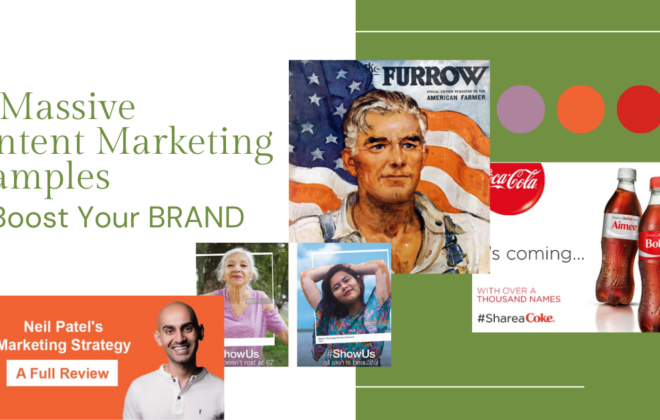The Ultimate Guide to Content Marketing in 2025
Content marketing can be a game-changer for a brand because it aims to stand uniquely in a competitive landscape. Its ability to attract, engage, and grow audiences at a fraction of the cost of traditional advertising has also made it an important tool for businesses seeking sustainable growth.
Addressing clients’ pain points and demonstrating how your solutions meet their demands or overcome obstacles can build trust and long-lasting connections.
Crafting content for your audience that conveys your brand’s expertise and purpose is one of the most effective forms of marketing; you gain the trust and loyalty of your customers while they gain helpful information.
Why are these forms of marketing so impactful? Why has it become so crucial to digital marketing? How does its information and engaging content have such a powerful effect on customer decision-making?
This blog will provide a detailed study of content marketing, including all the knowledge you need to create successful campaigns.
Crating ng is
What is content marketing?
Content marketing involves creating and distributing beneficial, timely, and consistent material to attract and retain a specific audience. The objective is to promote successful client behavior by offering insights, solutions, and engaging experiences. Examples of content marketing include eBooks, infographics, podcasts, videos, and blogs.
Types of content marketing
A strong content strategy is key to keeping your audience engaged at every stage of their journey.
Digital experiences: These are highly customized content experiences that are suited to a customer’s interests and purchase and cover several touchpoints, including webinars and content hubs
Virtual conference: Virtual conferences allow prospective clients from around the globe to participate in events like press conferences and product launches. They also offer a great chance to communicate with your audience directly through tools like live chat, polling choices, and Q&As.
Webinars allow you to address a large audience at once and answer any questions they may have. Examples of these virtual events are workshops to resolve specific issues, panel discussions bringing together subject matter experts to debate the current problems, and even educational courses that grant certificates to participants.
Webinars are beneficial because they are still valuable as an on-demand resource after the live event.
Content Hubs: They are organized collections of content that revolve around a specific topic, designed to provide comprehensive information, insights, or resources. They consist of assets such as blogs, videos, webinars, and infographics, all laid out quickly for your audience to navigate.
Video content: is self-explanatory and can be in a wide range of formats. It includes everything from detailed FAQs to five-second social media animations. Video allows you to get creative with your content marketing.
Blogs are great for delving deeper into topics relevant to your products or services and demonstrating your expertise to your audience. Blogs can boost your visibility and authority by using the optimal keywords and providing valuable information to your customers.
Infographics are ideal for simplifying complex data, statistics, and numbers into a visually appealing and readily comprehensible format. A well-designed infographic can efficiently and properly convey information on channels like social media, where space may be limited, and images are more powerful than words.
Why is content marketing important for B2B?
Content marketing makes your B2B website a very effective conversion tool by enhancing lead quality, improving organic search visibility, educating the customer, overcoming objections, and strengthening brand loyalty. This is why content marketing for B2B matters:
Increasing Recognition of the Brand
Engaging and educational content helps establish awareness and trust by showcasing your expertise and communicating the value of your business. Customers are more likely to select well-known and trustworthy brands. Good content builds stronger relationships with your audience by showcasing your goods and services and embodying your brand’s principles.
Creating Thought Leadership
B2B content marketing establishes your company as an industry leader. If you provide thought leadership content, such as smart articles or expert interviews, your audience will perceive you as a reliable source. This credibility advances potential clients along the buyer’s journey and fosters confidence.
Producing Useful Leads
Beyond narrating your story, B2B content marketing addresses customer demands to generate attention and leads. You strongly argue for involvement by illustrating how your products address issues. Blog entries with product links are optimized content that helps readers explore your website and get closer to converting.
Lead Nurturing
Every customer’s journey is different, and tailored interaction is crucial. Content is essential to encourage these connections and attract readers—even regular visitors—to explore further. As clients go through the sales cycle and content marketing funnel, various forms, including blogs, videos, and infographics, may maintain interest and keep them involved.
Closing Sales
Content takes center stage when it comes to converting leads. Clear, appealing information about your products, such as essential features or client testimonials, can build trust and influence decision-making. A simple yet powerful material, like case studies, may convert interest into commitment by persuading potential customers to arrange a call, schedule a demo, or make a purchase.

How does content marketing drive sales?
Content marketing produces appropriate content that meets your target audience’s interests and requirements.
Educating customers about the advantages of your goods or services is one of the primary ways that content marketing increases sales. You may demonstrate how your products can address their wants or solve their problems by giving them useful information. This promotes trust and positions your brand as a reliable information source.
Leads are nurtured through the sales funnel with carefully considered marketing material. You may influence potential buyers to purchase by producing various kinds of content that address every phase of the buyer’s journey, from awareness to consideration to conclusion.
Content marketing includes blog posts, case studies, white papers, videos, and much more. It is very important in driving sales and marketing efforts by providing valuable information, building trust and credibility, guiding leads through the sales funnel, and ultimately converting prospects into loyal customers.
Producing brilliant, relevant content that appeals to your target audience can elevate your company to the top of your sector and drive business sales.
How to develop strategies for content marketing
A solid plan is the first step toward effective content marketing. Take these actions:
- Define your goals: Decide what you want to accomplish, such as generating more leads, retaining customers, or increasing traffic.
- Know Your Audience: Recognize their habits, preferences, and areas of discomfort.
- Select Channels: Pay attention to the platforms your target audience uses most frequently.
- Arrange Your Schedule: It is crucial to maintain consistency. Make a content calendar to guarantee regular releases.
- Measure Results: Utilize analytics to monitor results and modify your approach.
Top Content Formats to Focus on in 2025
Short-Form Videos
Short videos grab attention quickly and perform well on platforms like TikTok, Instagram Reels, and YouTube Shorts. Use them to showcase products, share tips, or tell engaging stories.
Podcasts and Audio Content
Podcasts give companies a quick and intimate way to communicate with their audiences. Create episodes that share industry trends, expert interviews, or success stories.
User-Generated Content
Motivate clients to produce and share content that highlights your company. Highlight testimonials, reviews, and social media posts to build validity and trust.
Niche Blogs and Articles
Focus on specific industries, challenges, or solutions. Niche content helps establish authority and attracts highly targeted leads who are more likely to convert.
Conclusion
Marketing trends are always changing, but the basic goal always remains to provide value to your audience. Maintaining a solid plan while embracing new trends, such as user-generated content and short-form films, must be relevant in 2025. Create solutions, cultivate relationships, and always keep your audience in mind. Successful companies will know who their customers are and will always provide outstanding content.
If you are looking to take your brand to the next level in 2025, then do connect with us.





